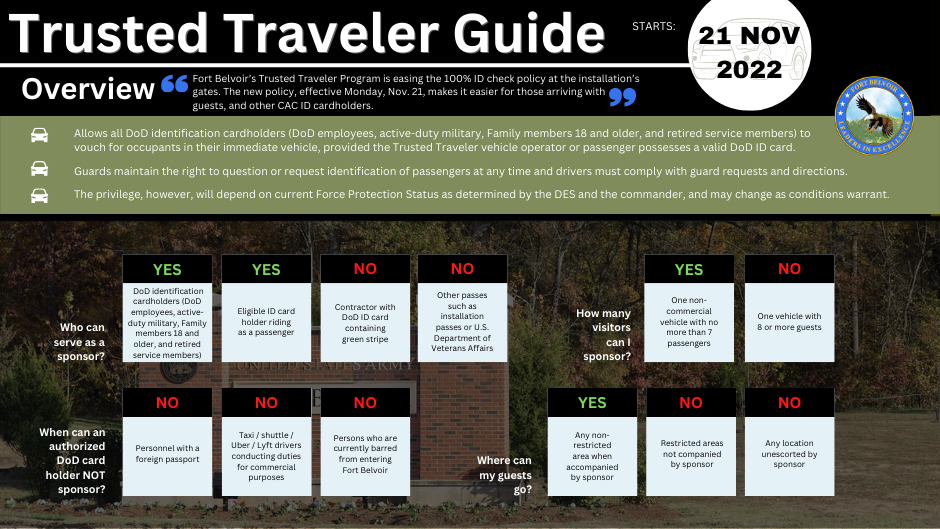
Lt. Marvin Johnson, Army Security Guard, checks a visitor's ID at Fort Belvoir's Tully Gate in this file photo.
Trusted Traveler Program speeds access to Fort Belvoir
New ID policy intended to ease access to installation
Fort Belvoir’s Trusted Traveler Program is easing the 100% ID check policy at the installation’s gates. The new policy makes it easier for those arriving with guests, and other CAC ID cardholders.
The change, approved by COL Joseph Messina, garrison commander, was designed to improve access to the installation, according to Boyd Hodges, director, Directorate of Emergency Services.
“We hope this privilege will decrease delays at Fort Belvoir Access points,” said Hodges, noting that this privilege only applies to drivers with a valid CAC or DoD ID0 card. “Guards maintain the right to question or request identification of passengers at any time and drivers must comply with guard requests and directions.”
According to Army Regulation 190-13 – the Army Physical Security Program, common access card holders, military retirees and military Family members have an inherent purpose and are authorized access to Army installations, therefore the Trusted Traveler Program allows all DoD identification cardholders access to the installation. That allows the following to vouch for others in their vehicle:
· DoD employees
· Active-duty military
· DoD Family members 18 and older
· Retired service members
Those not permitted to be a trusted traveler include:
· Contractors
· Foreign Visitors
· Sponsored Pass holders
· Veterans ID card holders

If there is no DoD ID cardholder in the vehicle, then all occupants will be required to show appropriate identification and possibly have the vehicle searched to enter Fort Belvoir. Persons with valid ID cards cannot vouch for persons with a foreign passport or ID.
The privilege, however, will depend on current Force Protection Status as determined by the DES and the commander, and may change as conditions warrant.
“We hope this privilege enhances the quality of life on post without compromise to security,” Hodges said. “This is only effective if drivers assume ownership for the actions of all parties within their vehicles.”
Paul Lara, Fort Belvoir Public Affairs





